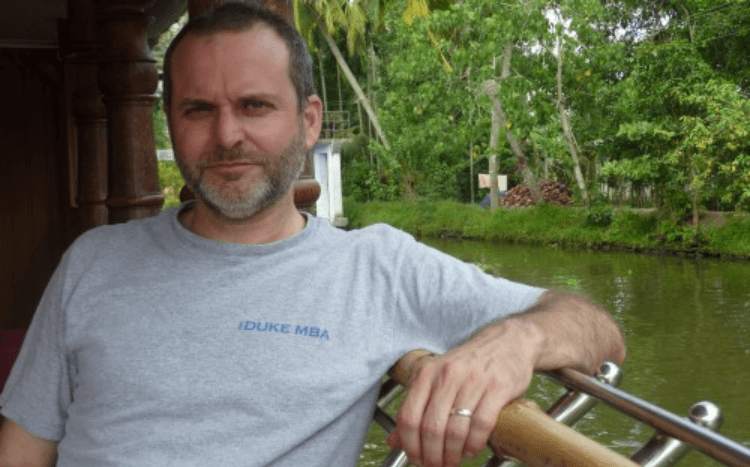India has previously enjoyed a significant rise through the economic rankings. Recently it has been considered a major economic power and a large number of its citizens have been taken out of poverty.
The MBA programs on offer at the Indian Business School and the Indian Institute of Management – Ahmedabad are ranked among the top 50 MBA programs worldwide, and as many as 20% of Indian MBA students are confident enough to start their own venture or work in startups. Many US business schools, including Duke, receive a huge amount of applications from Indian students.
But India's economic progress is slowing down. Since May this year the Indian currency, the rupee, has fallen by 16 per cent in value against the American dollar. India's growth has halved since a peak of 9 per cent just two years ago. All of this has led to some commentators calling the introduction of capital controls last week as the reason for investors moving out of India and shares sliding.
But although the Duke Fuqua School of Business has its main campus in North Carolina, USA, and despite a lesser outlook for the Indian economy, it is 8000 miles south of their Durham HQ that MBAs are developing a keen interest. While some teaching takes place at Duke’s USA base, the Fuqua School of Business is renowned for its internationally focused MBA programs.
The Cross Continent MBA attracts professionals from over 25 different nationalities and aims to develop MBAs a culturally diverse network from which to graduate alongside. Over 16 months, teaching is spread across five different continents in Dubai; New Delhi; St. Petersburg; Shanghai/Kunshan; and North Carolina.
It will come as no surprise to MBAs then that Duke is fast branching out into Indian cities such as Delhi and Bangalore. The man in charge of Duke’s involvement with India is Dan McCleary, Regional Director, India, at Duke for over a decade and previous head of admissions for all of Duke’s MBA programs.
Dan visits India 4 to 5 times a year for weeks at a time, working with both the MBA alumni based there and attracting around 40 Indian-origin MBA students to Duke each year. “That is when the job comes alive,” Dan says.
The benefit to MBAs is that Duke has built a base of connections to help students find careers in the ninth largest economy in the world. “We have a board of advisers in India, and several are based in Deli and Bangalore," he said.
“In the last 4 years in the Indian region we have developed a lot of connections with businesses; we are well connected to the business community. For example, one board member knew that I was planning a residency trip and got the CEO of Wallmart India to be our keynote speaker. He was one of the best key-notes we’ve had during the 4 years!
“Our programs are more robust than business schools planning to do a global trip. We have more power to structure.”
Dan says that while many Duke MBAs want to work in the US, many Indian alumni “want to go back to India”. “A big part of my role is networking for returning Indian-origin students who are going back to work in India,” he said.
“Two of our board members run companies called Fortis – one of the largest healthcare companies - and Religare (health insurance).
“A Duke daytime alumni named Nitish Aggarwal, who made a connection to Religare, is now working in Mumbai for them. India-based companies dominate in the market.”
Many US-based business-schools get the majority of their applicants from India and China, but Dan says that many universities “take advantage of India” and look elsewhere because of the sheer number of applications from Indian-based professionals.
To get onto the day-time MBA program at Duke, Dan says applicants have to have a big interest and really need to stand out from the crowd. The people that “feel like they have a real understanding of the school and culture, by doing their own legwork” craft a better application. “People who are honest about what they want to achieve academically and socially, and what they want to do afterwards (are what Duke look for),” Dan said.
“We see a lot of backgrounds now in medicine, humanities, law and commerce. Work experience looks more diverse than it used to be. People who worked for smaller companies usually do a good job of explaining that industry.”
Despite heading the admissions department and making-or-breaking business professionals’ dreams for a number of years at Duke, Dan has no aspirations to do an MBA himself. “At this stage, and with two kids, while we have people in the program who are 48, I don’t think that I could find something that is the right fit.”
No matter what the competition for places is on its MBA programs, Duke will strive to continue developing connections for MBAs in India. And while Fuqua has no permanent base in the country, Dan hopes that they will have one in the years to come: “Its likely that I will remain at Duke and travel over. Its also very possible that, hopefully, my successor will be based in India permanently.”
Are you an MBA thinking of working or studying in India? Tweet the team @BusinessBecause and tell us why.
Student Reviews
Duke University Fuqua School of Business
RECAPTHA :
43
29
84
75








